Judith McMullan is Global OpEx Manager, Abbot.
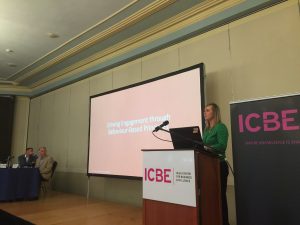
Our Journey to Excellence
Judith currently manages the Shingo program across Abbott Nutrition Supply Chain (ANSC), where they have a number of sites challenging for the Shingo Prize over the next three years. In October 2017, Abbott Nutrition, Sligo were the first site in the ANSC network to receive the prestigious Shingo prize.
When they started the Shingo process three years ago they liked the Enterprise wide nature of the process, how it mirrored their values and behaviours and connected the dots between people, process, purpose and performance offering them an external validation of their excellence journey.
The process now engages everyone, everyday with a culture of continuous improvement and problem solving with all teams working together to achieve enterprise alignment. This is achieved through the deployment of the Management Operating System (MOS), standard work and visual management and is measured through the premier plant balanced scorecard.
Judith explained how the company drove engagement through Behaviour-Based Principles using the Shingo methodology. The Shingo model leverages an interconnection of Guiding Principles, Systems, Tools and Results with culture at its centre. Guiding Principles are aligned to Systems which in turn drive guiding principles. Systems in turn select Tools which enable systems. Tools achieve results and results refine tools. Results also affirm Guiding Principles which drive results. At the centre of all of this is culture manifested in behaviour.
As a hierarchy the Shingo model has results at the top which created customer value, followed one step down by Enterprise Alignment, creating constancy of purpose and systematic thinking. Continuous Improvement focuses on process, embracing scientific thinking, flow and pull value, assure quality at the source and seeking perfection. Finally at the base of the pyramid are cultural enablers by leading with humility and respecting every individual.
Judith shared how the people within ANSC are considered to be their greatest asset across all functional groups and it is the collaboration, shared behaviours and common goal that make them a prize winning organisation.
Abbott Nutrition have achieved MOS implementation and standardisation across 14 plants in the ANSC network, across many cultures, also encompassing the functional groups – demonstrating that excellence is not limited to the shopfloor and is relevant and achievable globally.
Standardisation through MOS
Judith explained the range of Cultural Enabler activities and structures that Abbott have in place to ensure leading with humility and respecting every individual. This includes ensuring Safety is always the number one priority, comprehensive auditing to ensure compliance and continuous improvement, an investment in the development of employees through specific leadership programs such as Mindful Leader, through strong visual management achieved through a 5-tiered meeting process, and a culture of recognition of their pledge behaviours.
According to Judith one of the biggest complements during a Shingo visit was when the Shingo examiners shared with the leadership team how it was not easy to distinguish leaders from managers or associates because they had built a strong culture of leading with humility and respecting every individual.
Judith shared how ANSC have evolved on their excellence journey, continuously challenging the tools, systems and measures they have in place and if they are driving an improvement in performance. Asking questions such as “If it is not adding value or making a difference, why are we using it or measuring it?” One such example is in the revisions to visual management, allowing room for personalisation as opposed to stringent standardisation to ensure it is driving results and meeting the needs of individual teams.
The customer is at the heart of everything that Abbott Nutrition do, with their products spanning the continuum of health, and providing life-enhancing nutritional products for infants through to the elderly. To remind of this and ensure they never become complacent, they hold an annual customer appreciation day. Judith shared the most recent example of this in Sligo, where a father of two daughters dependant on nutritional devices manufacturing at the Sligo facility came to site to share their story with all employees. This provides an opportunity to understand the user experience, look at opportunities for further improving our product and touch the hearts and minds of employees by bringing the customer insight to the shopfloor.
Abbott Nutrition to directly correlate their operational excellence journey to improved business results and cost improvements year over year, with the systems and tools implemented allowing employees to work smarter, not harder. Since the deployment of their Management Operating System, they have seen their journey develop through the various phases of Build, Grow, Evolve and today it is in a Sustain phase, yet continuing to challenge and improve.
On Oct. 12th 2017, Abbott Nutrition Supply Chain, Sligo Ireland, received notification from the Shingo Institute that they had won the prestigious Shingo Prize per the recommendation of the Shingo examiners. This was a proud moment for all Sligo employees and the entire Abbott Nutrition division, being the first site to have received this external validation of their performance.
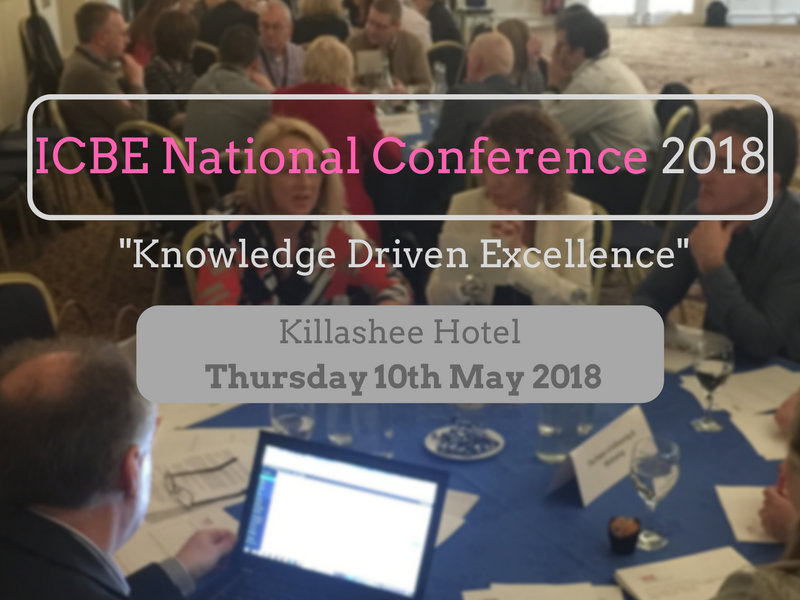
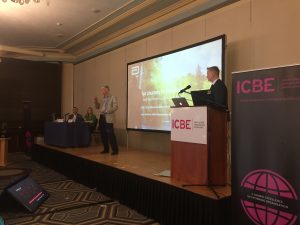 Two common themes come up when we review how businesses approach problem solving.
Two common themes come up when we review how businesses approach problem solving.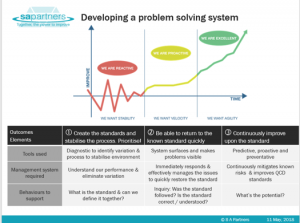
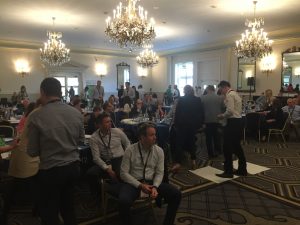 Using the same standard conditions with one slight change (how the card is held) John demonstrated the problem related to the control of the aerodynamics of the card’s flight to the target area. John explained that by understanding the aerodynamics of the cards flight and what was need to ensure a perfect flight, we could then create well thought out standard work documents that are truly applicable to the process and will ensure consistent predictable results.
Using the same standard conditions with one slight change (how the card is held) John demonstrated the problem related to the control of the aerodynamics of the card’s flight to the target area. John explained that by understanding the aerodynamics of the cards flight and what was need to ensure a perfect flight, we could then create well thought out standard work documents that are truly applicable to the process and will ensure consistent predictable results.